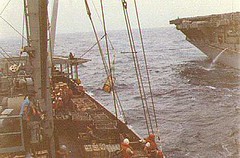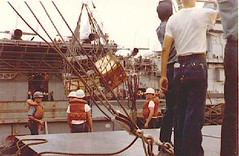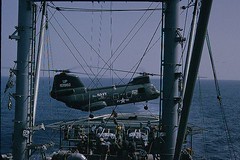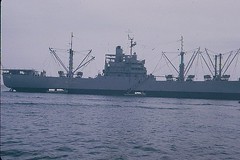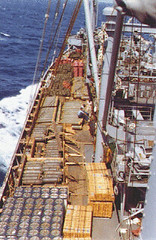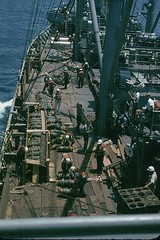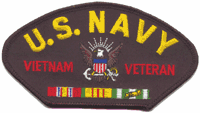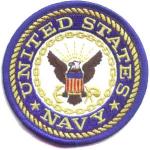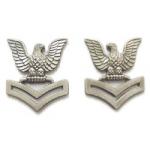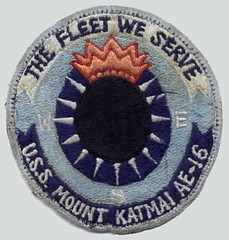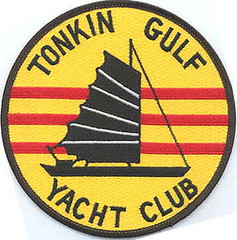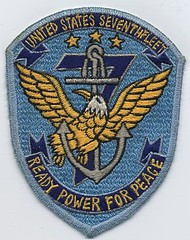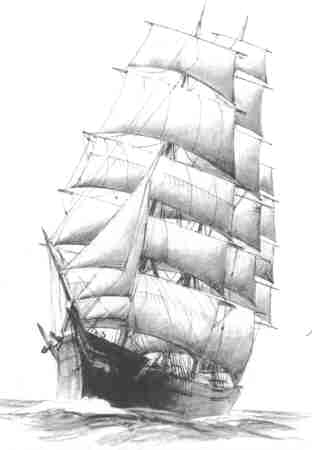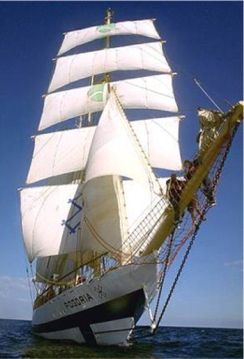Navy Charts Blue Water Diplomacy
MAJURO, Marshall Islands - Hellenty Phillips' 6-year-old daughter Marian had a piercing earache, but her family could not afford to pay $5 for her to see a doctor.
So Phillips turned to doctors and nurses visiting her tiny Pacific island nation on a 10-day humanitarian mission organized by the U.S. Navy. For free, they diagnosed Marian's ear infection and gave her ear drops and Tylenol.
Such scenes are being repeated across the Pacific and Latin America this year as the Navy deploys two ships to nearly 20 poor nations to treat ailments and repair infrastructure.
Behind the bandages and new school roofs is the hope patients and nations receiving care will become better friends of the United States.
Military commanders also hope the assistance will bolster weaker nations plagued by poverty and unemployment, preventing them from becoming breeding grounds for extremist ideologies and terrorists.
"It's part of raising the bar throughout the region, raising the prosperity," said Adm. Robert F. Willard, Pacific Fleet commander, during a visit to the Marshalls, a former U.S. territory, to see the work on the ground. "There are real strategic benefits to what we're doing."
Willard told sailors such missions would become an annual event for the Pacific Fleet and a core part of the Navy's operations in coming years. U.S. commanders in the Middle East and elsewhere also are considering using the humanitarian ships to help boost security in their regions.
On Majuro Atoll, Phillips and her daughter Marian visited a makeshift clinic that one of the USS Peleliu's medical teams set up under tents on a converted tennis court.
Chinilla T. Pedro, who interpreted for Phillips and others seeking care, said some learned of the services by word of mouth.
"At the beginning today, they were kind of shy. They were coming around asking us what is going on? Do we have to pay $5? We said no, treatment is free here, so slowly they started coming around," Pedro said.
Such clinics generally serve several hundred people per day. Those needing operations are referred to the Peleliu, where surgeons can repair hernias and perform cataract surgery.
The amphibious assault ship also has construction engineers on board to do infrastructure repairs. One team on the remote atoll of Arno Arno in Marshalls worked to replace the roof on a schoolhouse for 80 students.
At the end of the Peleliu's five-nation tour this month, its 180 doctors, nurses and other professionals will have treated some 30,000 people. Its infrastructure projects in the countries visited - the Philippines, Vietnam, Papua New Guinea, the Solomon Islands and the Marshalls - are expected to affect the lives of 100,000 people.
Navy sailors have long done community service in their various ports of call in both rich and poor countries. But sending ships on monthlong missions takes military humanitarian work to a new level.
The strategic potential of such deployments dramatically came to light when the U.S. Pacific Command sent ships and planes to deliver food, tents, and medical care for victims of the 2004 Indian Ocean earthquake and tsunami.
The assistance lifted U.S. approval ratings in predominantly Muslim Indonesia to 38 percent in 2005 from just 15 percent two years earlier, according to a poll by the Pew Global Attitudes Project.
Indonesian opinion of the U.S. declined again last year, with the Pew poll saying only 30 percent of respondents had a favorable view of the U.S. But the rate was still above its low.
The Pacific Fleet followed up last year by dispatching the USNS Mercy hospital back to Indonesia's tsunami-ravaged Aceh province.
The white-hulled vessel also stopped in places unaffected by the giant waves, like the southern Philippines, where U.S. forces are helping the Philippine Army fight insurgents linked to al-Qaida.
This year, the Navy sent the Atlantic Fleet's hospital ship, the USNS Comfort, on a four-month, 12-country voyage to Latin America. The trip including stops in Colombia, Ecuador and Nicaragua. It is expected to treat some 85,000 patients with free vaccinations, eye care, surgeries and other procedures.
Willard said Central Command leaders - who oversee the U.S. military in the Middle East and Central Asia - want to run a similar mission in their area, as do officials at the European Command, which has responsibility for Europe and Africa. Each mission costs an average of $20 million, the admiral said.
"These aren't trivial missions and they're expensive. But we're willing to pay," Willard told several hundred USS Peleliu crew members as the ship sat anchored in a lagoon off the Marshallese capital.
The idea is expanding beyond the Navy.
The Pacific Command this summer tasked the Air Force with sending doctors, nurses and technicians to three remote Pacific island nations. A C-17 cargo jet flew down to Vanuatu, Kiribati and Nauru with 50 medical personnel for 10 days in late July.
"What better way to help improve our image, if you will, and to create friendships, than through aiding people with medical problems?" asked Lt. Gen. Loyd S. "Chip" Utterback, 13th Air Force commander.











